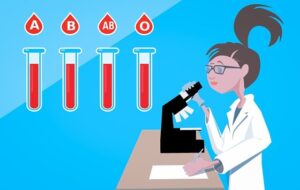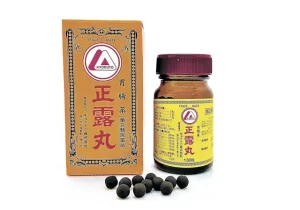Current Drug Therapies for Non-Small Cell Lung Cancer
- Gut Bacteria Enzymes Offer Hope for ABO Universal Blood Transfusions
- Well-Known Japanese Medicine Exposed for 30 Years of Data Falsification
- Oregon Reverses Course: From Decriminalization to Recriminalization of Drug Possession
- Why Lecanemab’s Adoption Faces an Uphill Battle in US?
- Yogurt and High LDL Cholesterol: Can You Still Enjoy It?
- WHO Releases Global Influenza Vaccine Market Study in 2024
Current Drug Therapies for Non-Small Cell Lung Cancer
- Was COVID virus leaked from the Chinese WIV lab?
- HIV Cure Research: New Study Links Viral DNA Levels to Spontaneous Control
- FDA has mandated a top-level black box warning for all marketed CAR-T therapies
- Can people with high blood pressure eat peanuts?
- What is the difference between dopamine and dobutamine?
- How long can the patient live after heart stent surgery?
Current Drug Therapies for Non-Small Cell Lung Cancer.
Lung cancer is the most common neoplastic disease, with more than 2 million cases and nearly 1.8 million deaths worldwide each year, and approximately 85% of lung cancer patients are diagnosed with non-small cell lung cancer ( NSCLC ), lung adenocarcinoma ( LUAD ) and lung cancer Squamous cell carcinoma ( LUSC ) is the most common subtype of NSCLC.
Over the past 20 years, the treatment of NSCLC has evolved from the empirical use of cytotoxic agents to better tolerated and more effective regimens by targeting specific molecular subtypes of the disease.
NSCLC is at the forefront of personalized medicine development in oncology with a growing number of biomarker-driven therapies aimed at treating tumors with driver mutations such as EGFR, ALK, ROS1, BRAF, MEK, MET, RET, KRAS inhibitors , and more recently HER2 inhibitors. Furthermore, immune checkpoint inhibitors ( ICIs ) have also revolutionized the treatment paradigm for NSCLC.
Current treatment
Metastatic NSCLC without driver mutations
For metastatic NSCLC without driver mutations, ICIs targeting PD-1 or PD-L1 are the cornerstone of first-line therapy, used as monotherapy, in combination with chemotherapy, or in combination with other ICIs.
The choice of method mainly depends on the level of PD-L1 expression and histological subtype. Among patients whose tumors had high levels of PD-L1 expression ( ≥50% ), the most common treatments were the PD-1 inhibitor pembrolizumab (Keytruda ) ; the PDL1 inhibitor atezolizumab ( Tecentriq ); and the PD-1 inhibitor cemiplimab ( Libtayo ).
Patients with tumors with low ( 1-49% ) or negative ( <1% ) PD-L1 expression typically received pemrolizumab plus platinum-based chemotherapy, or less commonly atezolizumab plus platinum-based chemotherapy.
The PD-1 inhibitor nivolumab ( Opdivo ) and the CTLA4 inhibitor ipilimumab ( Yervoy ) are approved for patients whose tumors express ≥1% PD-L1, offering chemotherapy-free options. Nivolumab is also approved in combination with ipilimumab and limited chemotherapy regardless of PD-L1 expression.
In November 2022, based on the Phase III POSEIDON trial, the FDA approved the PD-L1 inhibitor durvalumab ( Imfinzi ) in combination with tremelimumab ( Imjudo ) and platinum-based chemotherapy for metastatic NSCLC without EGFR mutations or ALK translocations.
That same month, the FDA approved cemiplimab in combination with platinum-based chemotherapy as first-line treatment for metastatic NSCLC without EGFR, ALK, or ROS1 aberrations , based on the EMPOWER-Lung phase III trial .
Metastatic NSCLC with driver mutations
The EGFR tyrosine kinase inhibitor ( TKI ) osimertinib ( Tagrisso ) is the standard drug for the treatment of EGFR-mutated NSCLC, and alectinib ( Alecensa ) is the standard drug for the treatment of ALK translocation-positive NSCLC.
Several other EGFR and ALK TKIs can also be used as first-line or later-line therapy.
The EGFR/cMET bispecific antibody amivantamab ( Rybrevant ) and the EGFR TKI mobocertitinib ( Exkivity ) are options for patients with EGFR exon 20 insertion mutations who do not respond well to classical EGFR inhibitors.
ROS1 inhibitors including crizotinib ( Xalkori ) and entrectinib ( Rozlytrek ) are approved for ROS1-mutated NSCLC.
The combination of the BRAF inhibitor dabrafenib ( Tafinar ) and the MEK inhibitor trametinib ( Mekinst ) is approved for BRAF-V600E-mutated NSCLC.
Capmatinib ( Tabrecta ) and tepotinib ( Tepmetko ) are available for patients with MET exon 14 skipping mutations, while selpercatinib ( Retevmo ) and pralsetinib ( Gavreto ) are available for RET fusion NSCLC.
Sotolasib ( Lumakras ) is the first KRAS inhibitor to receive accelerated FDA approval for previously treated metastatic KRAS-G12C NSCLC.
The FDA granted accelerated approval to adagrasib ( Krazati ) in December 2022 based on the phase 2 KRYSTAL-1 trial, and a phase III trial of adagrasib with docetaxel is ongoing.
In August 2022, based on the Phase II DESTINY-Lung02 trial, the antibody-drug conjugate trastuzumab deruxtecan ( Enhertu ) became the first HER2-targeted therapy to receive accelerated FDA approval for HER2-mutant metastatic NSCLC.
Patients with driver gene mutations treated with biomarker-targeted therapies can be treated with immunotherapy in the later line.
Unresectable locally advanced NSCLC
Unresectable stage III NSCLC is treated with multimodality therapy, including sequential or simultaneous chemoradiotherapy.
Durvalumab is approved for treatment after chemoradiotherapy in this condition, but in Europe it is limited to patients with PD-L1 expression ≥1%.
Such clinical trials of durvalumab and other marketed ICIs are ongoing.
Localized and resectable locally advanced NSCLC
Patients with localized stage I–II NSCLC received curative-intent surgery or radiotherapy, whereas most patients with stage IB or II NSCL received adjuvant dual chemotherapy.
Patients with resectable stage III NSCLC are primarily treated with neoadjuvant chemotherapy ( radiation therapy ) or surgery, followed by chemotherapy or chemoradiation.
In stage IB–IIIA NSCLC, patients with EGFR exon 19 deletion or exon 21 substitution mutation were eligible to receive osimertinib after resection. Atezolizumab is approved for certain patients with PD-L1-positive stage II–IIIA NSCLC after resection and chemotherapy.
In March 2022, the FDA approved neoadjuvant nivolumab plus platinum-based chemotherapy for resectable NSCLC. Several other marketed ICIs and biomarker-driven therapies are under evaluation.
Emerging Therapies
According to Clarivate , as of January 12 , 2023 , NSCLC has one of the most dynamic pipelines in oncology, with more than 330 drugs in active clinical development. The late-stage pipeline spans a broad range of mechanisms of action and drug classes.

ICI plays an important role in the NSCLC pipeline. Many novel PD-1/PD-L1 inhibitors are in Phase III development, such as retifanlimab.
TIGIT is a novel immune checkpoint target with several candidates in Phase 3.
Despite setbacks for tiragolumab-based combinations in two phase III trials ( SKYSCRAPER-01 and SKYS CRAPER-02 ), a phase III trial of tiragolumab plus atezolizumab versus durvalumab ( SKYSCRAPER ) is still ongoing.
Other novel checkpoint targets include CD73 and NKG2A, and the phase III PACIFIC-9 trial is testing oleclumab ( anti-CD73 ) or monalizumab ( anti-NKG2A ) in combination with durvalumab in patients with unresectable stage III NSCLC.
Additionally, the EGFR TKI lazertinib in combination with amivantamab is being evaluated versus osimertinib in the MARIPOSA phase III trial in previously untreated metastatic NSCLC with certain EGFR mutations.
The phase III MARIPOSA-2 trial is testing amivantamab in combination with chemotherapy with or without lazertinib in patients previously treated with osimertinib.
HER3-targeted ADC patritumab deruxtecan is in phase II clinical trial ( HERTHENA-Lung01 ) for certain EGFR-mutant stage III NSCLC patients .
The multitargeted angiogenesis inhibitor lenvatinib is being evaluated in metastatic NSCLC.
The phase III LEAP-008 trial compared lenvatinib alone or in combination with pembrolizumab and docetaxel after prior immunotherapy and chemotherapy.
The phase III LEAP-006 trial is evaluating the benefit on progression-free survival and overall survival of adding lenvatinib to pembrolizumab and chemotherapy as first-line therapy.
But in the phase III trial of LEAP-007, lenvatinib plus pembrolizumab failed to improve overall survival in PD-L1-positive previously untreated patients, casting a shadow over LEAP-006.
MET is a biomarker of acquired resistance to EGFR TKIs.
The phase III SAFFRON trial is evaluating the MET inhibitor savolitinib in combination with osimertinib in previously osimertinib-treated patients with EGFR-mutant and MET-overexpressing metastatic NSCLC.
Telisotuzumab vedotin is an anti-MET ADC currently in Phase III clinical development for previously treated patients with MET-overexpressing metastatic NSCLC.
Two TROP2-targeting ADCs, sacituzumab govitecan and datopotamab deruxtecan, are in phase III trials in patients with metastatic NSCLC after prior immunotherapy and chemotherapy.
Datopotamab deruxtecan is also being tested in other phase III trials with first-line pembrolizumab with or without chemotherapy.
Market Situation of NSCLC Therapeutic Drugs
Sales of NSCLC drugs in major markets totaled $24.1 billion, led by ICIs ( $14.5 billion; 60% share ), with pembrolizumab being the top-selling drug ( $9.9 billion ), according to Clarivate .

EGFR-targeted therapies and ALK/ROS1 inhibitors hit $3.9 billion and $1.6 billion, respectively, driven by strong sales of osimertinib ( $3.3 billion, the second-highest-selling drug ) and alectinib ( $910 million ).
Sales of cytotoxic drugs hit $2.4 billion, ahead of angiogenesis inhibitors ( $1.1 billion ).
In 2021, combined sales of BRAF, MEK, MET, RET, and KRAS inhibitors will be $650 million.
The NSCLC drug market is expected to double to $48 billion by 2031. ICI is expected to capture more than half of the sales ( $26 billion ), with pembrolizumab maintaining its top position ( $16.4 billion ).
Additionally, sales of EGFR-targeted therapies are expected to reach $11.5 billion by 2031; continued brand expansion of osimertinib will be the main sales driver ( $10.2 billion ).
ALK and ROS1 inhibitors are expected to bring in $3.9 billion, led by alectinib at $1.8 billion.
Growth for BRAF, MEK, MET, RET, KRAS, and HER2 inhibitors will be relatively slow ( $2.9 billion combined ) because these driver mutations are rare and, in some cases, competitive.
Angiogenesis inhibitors are expected to bring in $1.2 billion, including $560 million for lenvatinib. Sales of anti-HER3 and anti-TROP2 ADCs are likely to be low.
references:
1. The non-small-cell lung cancer drug market. Nat Rev Drug Discov. 2023 Jan 23.
Current Drug Therapies for Non-Small Cell Lung Cancer.
(source:internet, reference only)
Disclaimer of medicaltrend.org
Important Note: The information provided is for informational purposes only and should not be considered as medical advice.



